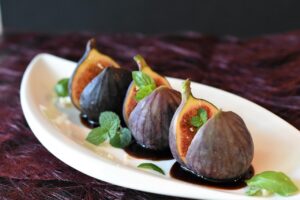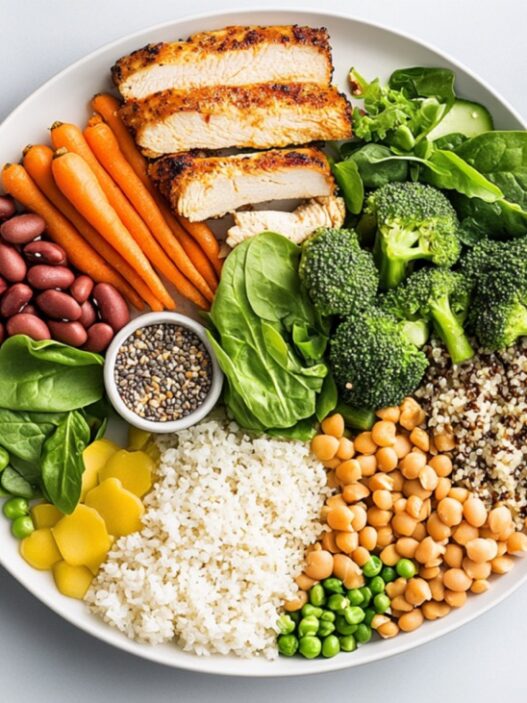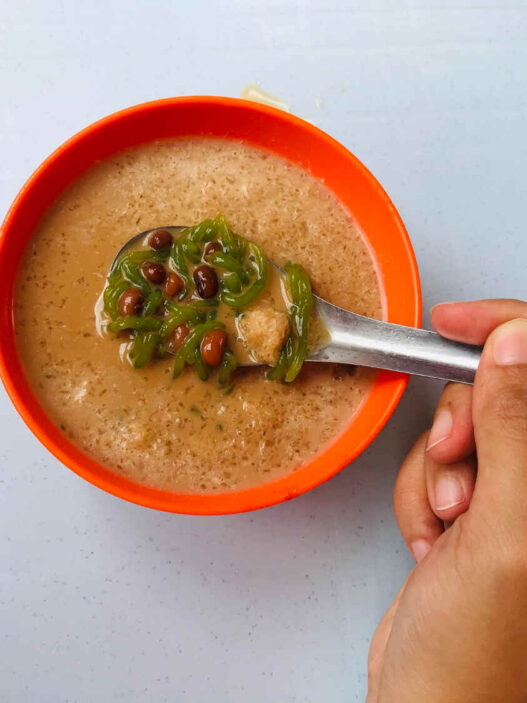Fruit sweetener? Have you tried bananas, figs, monk fruit, dates, and applesauce as fruit sweetener to replace sugar or as sugar substitutes? Check them out!
Fruit Sweetener
Fruit as Sweetener?
What a fascinating concept!
Is it possible to live a fulfilling life without those yummy doughnuts, chocolate chip cookies, or blueberry pancakes? But splitting up is indeed difficult. If you’re attempting to break up with sugar, go on the rebound and try some of these delectable alternatives: Fruits!
Is it possible?
Yes. I’m sure we all face a lot of sugar cravings and find hundreds of ways to satisfy the sugar cravings and find hundreds of ways to satisfy it. But little did we know about using healthy ways of replacing our sugar addiction with the help of fruits that act as natural sweeteners.
Added sugar is one of the most divisive components of today’s diet. Obesity, heart disease, diabetes, and some malignancies are just a few of the major disorders linked to it. One factor is that the majority of people consume far too much sugar without recognizing it.
Fortunately, there are a variety of non-sugar ways to sweeten dishes, and fruit sweetener is one of them. Fruits like bananas, figs, and dates can help you stick to a low-sugar diet. If you like the taste of bananas, this alternative will provide you with additional fibre and potassium. Minerals like calcium and iron are found in figs and dates, and raisins are a suitable sugar replacement.
Is Fruit Sugar Bad For You?
No! Fruit sugar is not harmful to your health.
Sucrose, glucose, and fructose are the natural sugars that a fruit contains.
Because fruit sugar is combined with fibre and water in the fruit, it takes longer for your body to break down. This is in contrast to the highly processed added and manufactured sugars found in sugar-sweetened foods that are harmful to your health, such as corn syrup, galactose, sucrose, maltose, and high fructose corn syrup. The body metabolizes these processed sugars very fast, resulting in blood sugar spikes, hormonal changes, and cravings. Thus, one can easily use fruit as a sweetener to satisfy sugar cravings.
Benefits of Using Fruit as Sweetener to Replace Sugar
Fruits are high in fiber, which helps to maintain a healthy digestive system and intestinal bacteria. Fiber also promotes fullness, so if you substitute fruit for sugar in a recipe, you’ll likely feel more satisfied for longer.
For example, a brownie made with applesauce or banana will likely keep you fuller for longer than a brownie made with cane sugar, leaving your stomach growling 30 minutes later.
Fruit contains both water and fibre, which help to enhance digestion, keep things going along smoothly, and promote healthy gut bacteria. You’ll feel more regular, content, and energized after consuming fruit-sweetened items since the fibre causes enhanced fullness and improved digestion.
If weight loss is your objective, using fruit as a sweetener will help you achieve it or keep you at a healthy weight. Although it may be difficult to notice the advantages right immediately, increasing the number of whole, natural fruits in your diet, and increasing your fibre intake have been linked to a lower risk of diseases later in life. This increases longevity, allowing you to live a longer and healthier life in general.
Best Fruit Substitutes for Sugar
Bananas
This super-healthy version of our popular banana bread lets you enjoy a tasty treat without worrying about calories. If you want a unique and nutritious breakfast, a light dessert, or a healthy snack, this is the dish to make. You’ll be surprised at how effectively bananas perform as a baking sweetener.

We’ve all heard that bananas are abundant in potassium and fibre, but did you know that eating two a day can help you control your blood pressure? Relax by eating bananas. Ripe bananas are an excellent fruit sweetener and sugar substitute, not only because they are high in minerals and vitamins, but also because they are readily available. These are ideal for cooking. Simply mash them up and use them in any recipe that calls for sugar. Muffins, smoothies, and cupcakes are some of my favorite ways to use bananas.
Figs
Figs have natural sugar and can be used as fruit sweetener to replace sugar. They are mineral-rich fruits. Any cultivated fruit has the highest combined mineral concentration. Figs are a good source of calcium, potassium, and iron, as well as a good source of fibre to keep you regular. Figs are good for bone, blood, and intestinal health. The highest combined mineral concentration of any cultivated fruit is found in figs.

Making a puree at home is the finest technique to prepare figs for usage. Soak dried pitted dates or figs in warm water for a few hours (or overnight), then puree with some of the water in the blender until smooth. Start with a little amount of water and gradually add more until the consistency is thick but pourable. Yet again healthy and tasty.
Monk Fruit
Monk fruit is 100-250 times sweeter than sugar. When replacing sugar in recipes with monk fruit, it’s vital to check the ingredients list, as many products utilize fillers like maltodextrin or erythritol as the principal ingredient. These are zero-calorie artificial sweeteners that do not provide the same benefits as fruit replacements.

The ratio of monk fruit to sugar in a recipe varies depending on the kind of monk fruit sweetener used and normally ranges between ⅓ to ½ cup monk fruit sweetness to every 1 cup sugar.
Dates
Dates are extremely beneficial to the stomach, bones, and blood. Minerals such as calcium, iron, phosphorus, copper, and manganese are abundant in them, and they aid with bowel regularity. They are energetic food that helps us move and improves our metabolism due to their complex natural sugar composition.

Making a puree at home is the finest technique to prepare dates for usage as a fruit sweetener.
Apple Sauce
Applesauce is a high-fiber, vitamin-rich food that can be purchased ready-to-eat or made fresh from past-their-prime apples for use as a fruit sweetener. It tastes great in almost any dish that calls for sugar and can even be used in place of fat/oil. It is also great for baking. And it’s fantastic as a side dish to persuade picky kids to eat something they don’t like. Grated or diced apples sautéed in a little butter are also a tasty addition.
Conclusion
Sugar replacements are not all created equal. Some are beneficial for diabetics, while others may be too flavourful for some palates. However, all of these fruit sweeteners as sugar replacements are superior to ordinary table sugar and should be tried in a range of delectable recipes!
Overall, the sugar in fruit is a healthy substitute for added sweets, and the fibre, vitamins, water, and minerals in fruit aid in the metabolization of natural sugars. You may try fruit as a sweetener. There is also no evidence that natural sugar from fruit is harmful to your health, but there is plenty of evidence that fruit is beneficial to your health. Fruit is an important part of a well-balanced diet and should be enjoyed.

Prachi Vora is a graduate student pursuing BSc Hons in Food Science and Nutrition Management from JDBI Institute affiliated to Jadavpur University, Kolkata. She wrote this article as an in-house Intern writer at Healthieyoo.











